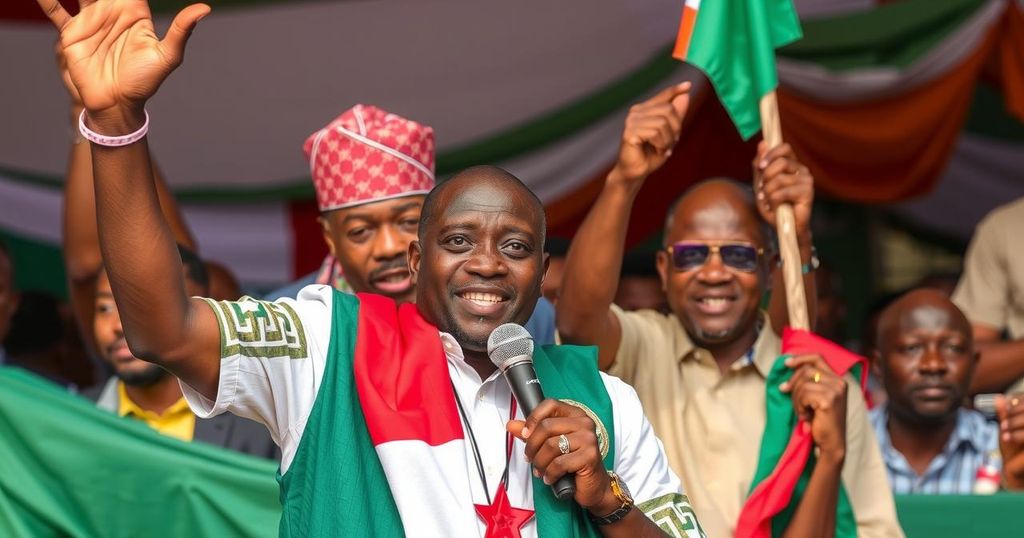Chad’s Ruling Party Secures Majority Amid Opposition Boycott in Elections
Chad’s ruling Patriotic Salvation Movement won 124 out of 188 parliamentary seats in December’s elections, despite an opposition boycott. With a voter turnout of 51.5%, this was the first parliamentary election in over a decade, marking a pivotal moment in President Mahamat Idriss Déby’s consolidation of power following his military takeover in 2021.
The ruling Patriotic Salvation Movement (PSM) in Chad has achieved a decisive victory in the recent parliamentary elections held in December, despite a boycott by key opposition parties. Provisional results indicate that the PSM secured 124 out of 188 seats, contributing to the consolidation of President Mahamat Idriss Déby’s power. The elections, marking Chad’s first parliamentary vote in over a decade, witnessed a voter turnout of 51.5 percent.
This election represented a critical phase in Chad’s transition to democracy following Mahamat Idriss Déby’s ascension to power as a military leader in 2021 after the death of his father, Idriss Déby Itno, who had ruled for 30 years. Moreover, this parliamentary election was accompanied by regional and municipal elections, which Déby hopes will facilitate desired decentralization within the governance system to empower various provincial and municipal levels.
However, more than ten opposition parties, including the prominent Transformers party led by Succès Masra, boycotted the election, characterizing it as a mere charade. This response was largely due to concerns regarding the credibility of the previous presidential elections. The opposition has yet to issue a formal statement regarding the provisional election results, raising questions about their acceptance of the government’s legitimacy amid ongoing security challenges, including threats from Boko Haram in the Lake Chad region as well as a crackdown on military relations with France.
Chad has experienced political turmoil following the death of long-time president Idriss Déby Itno in April 2021, which led to his son, Mahamat Idriss Déby, assuming power as head of a transitional military council. The recent parliamentary elections were perceived as a crucial stage in the effort to establish a more democratic governance structure, following years of autocratic rule under his father’s regime. The defection of key opposition parties from the electoral process has cast doubt on the legitimacy of the results and the government’s commitment to political reform amid various socio-political challenges.
In conclusion, the parliamentary elections in Chad serve as a significant milestone in President Mahamat Idriss Déby’s consolidation of power amid opposition boycotts. With the ruling party winning a substantial majority, questions linger about the future of democracy in Chad, particularly given the criticism from opposition groups concerning the credibility of the electoral process. The path forward remains fraught with security challenges and political uncertainty as the country navigates its transition to a more decentralized governance structure.
Original Source: www.rfi.fr




Post Comment